LONDON – Ever since the Brexit cliff failed to emerge, Leavers have been celebrating.
The UK economy continued to grow after the referendum vote to exit the EU a year ago. The Remainers were wrong: Apparently, we can have a strong economy without being attached to the EU.
But now, with the first three months of the two-year Article 50 period gone and no concrete progress to show, we’re starting to see economic data that backs up the theory that the Brexit cliff will be more of a gentle, downward slope:
- Business confidence is in decline. The Purchasing Managers’ Index (PMI), a measure of intended business activity, is trending down. And new car sales are in decline. There is one thing that has gone up: the amount of cash businesses are storing in overseas bank accounts.
These are not good signs for the economy. True, it is not a crisis. But we’re now at risk of the recession engulfing us gradually, like an old man lowering himself into a hot bath, getting used to it as he goes along.
GDP growth was 0.2% quarter-on-quarter in the most recent period. That's depressingly totemic because 0.2% is the same amount Brexit might cost us. According to the CBI, the extra tariffs on exports to the EU post-Brexit will slice between £4.5 billion and £6 billion annually from UK GDP, or 0.2% to 0.3% per year.
To put it bluntly, does this look like a healthy economy to you?
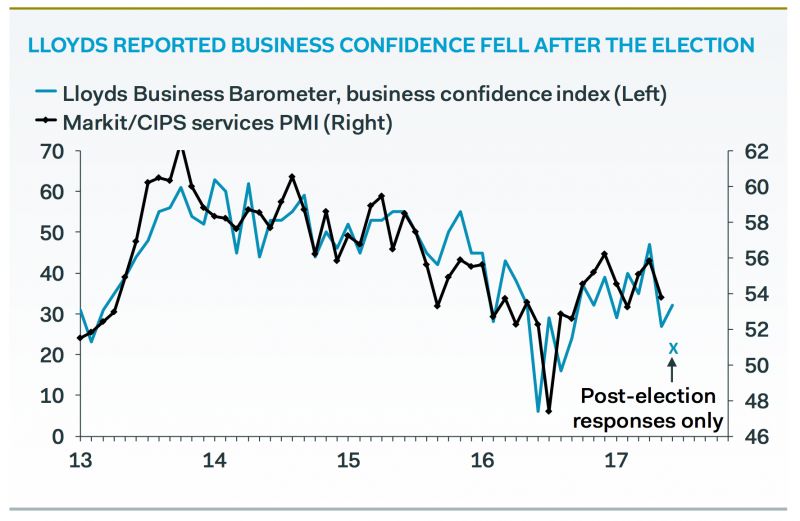
Here are the PMIs, which closely track GDP:
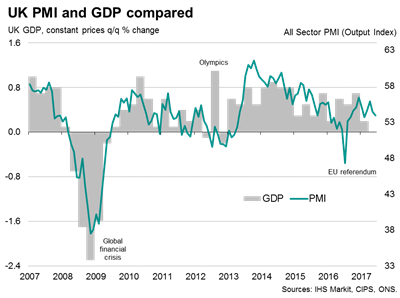
None of the individual PMI sectors are trending upward:
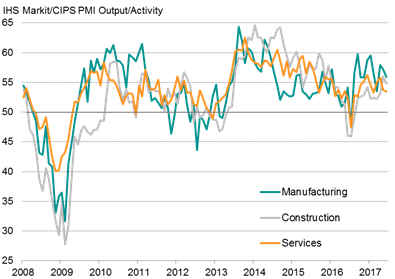
And big-ticket consumption is trending down, too. Here's the chart for new car registrations:
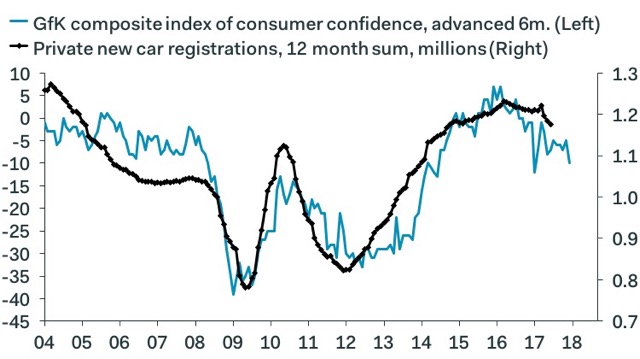
On top of that, businesses are storing capital overseas. Foreign currency is worth more against the pound after all ...
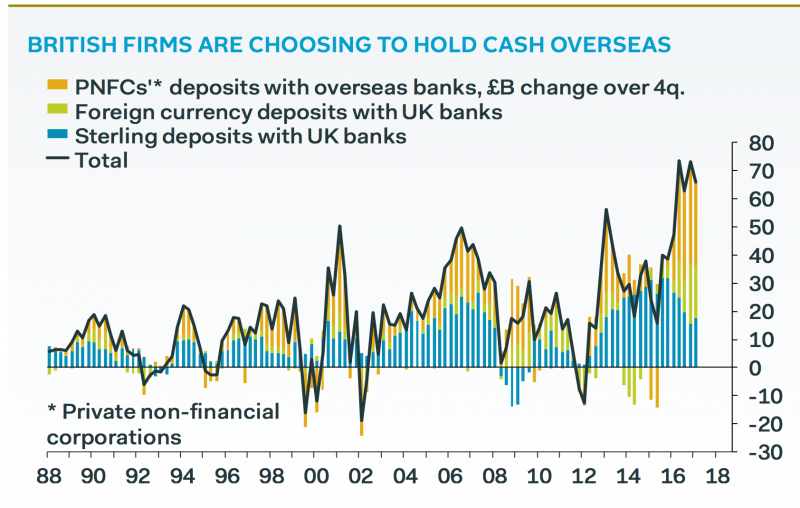
... and you might also get more growth for your money in the EU, which is trending up just as Britain tanks:
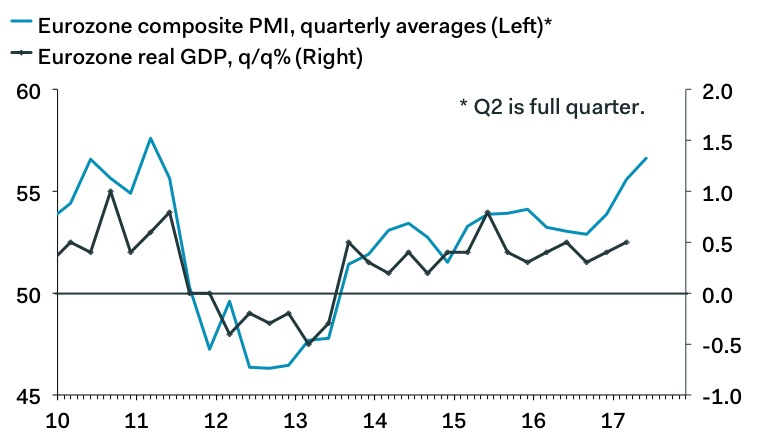
Prediction: As we head toward 2019, expect more business leaders to start talking more loudly about the economic cost of unhitching ourselves from our biggest single trade partner.

